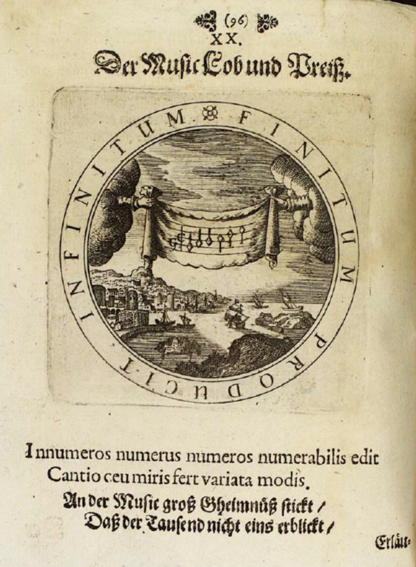Ruth Tatlow Joins the Academy of Music and Drama
Ruth Tatlow, a prominent authority on early music and compositional techniques, joins the Academy of Music and Drama as a visiting researcher. Her pioneering work has shed new light on the creative processes and the beliefs that influenced composers and poets in the 18th century.
"We are pleased to officially welcome Dr. Tatlow as a visiting researcher to the Academy of Music and Drama. As a leading Bach scholar, discussion partner, mentor, and research colleague she has already contributed to so many conferences and research projects at the Academy of Music and Drama. Her affiliation will allow this fruitful collaboration to deepen and grow," says Senior Lecturer Joel Speerstra.
Ideas that prevailed in Johann Sebastian Bach's time and influenced his compositions have been the focus of Ruth Tatlow’s academic career. Her research began with the question of whether Bach and his contemporaries knew and used speech-based alphabets, resulting in her first monograph, Bach and the Riddle of the Number Alphabet (Cambridge University Press, 1991). Her discovery that such systems were common among poets during Bach's time made it necessary to search further for specific number systems that could have been used in musical scores. To test their applicability, she developed a rigorous historically based approach, which led to the formulation of the theory of proportional parallelism (2007). A full explanation of the theory’s principles, with practical illustrations, was published eight years later in the award-winning monograph Bach's Numbers (Cambridge University Press, 2015).
A by-product of this research is the discovery that belief in the millennia-old system of universal harmony was still active in Lutheran Germany throughout the 18th and early 19th centuries. A further spin-off is a new interpretation of early modern theories on how proportions in music create an emotional response, which is the focus of her latest research project.
"My new interpretation of sources from 1570–1830 shows how the listener was exposed to the sonic proportions of the work’s form, which for centuries was thought to cause a deep emotional response. Naturally, the hypothesis will be tested biologically and neurologically. It is exciting that questions about the meaning of proportions may have led to a principle that could even be useful as a therapy."
Ruth Tatlow is warmly welcome to the Academy of Music and Drama. We look forward to seeing how her research will further pave the way for new insights into the mysteries of music from Bach's time.
For more information about Ruth Tatlow and her research visit her profile page.

Caption:
This image is full of clues about how music was understood in the time of Johann Sebastian Bach (1685–1750). Translated into English, the Latin motto reads: ‘An enumerable number produces innumerable numbers, just as a song brings forth variations in wondrous modes or wondrous ways.’